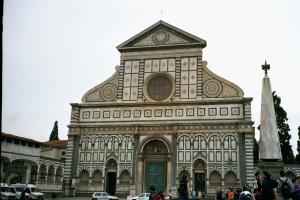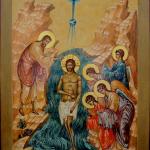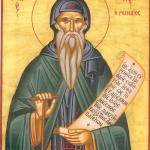
Since the new Jubilee Year, Jubilee 2025, began, I have found myself thinking about two different things. The first relates to the Jubilee Year itself, its meaning in the present, but also what it originally meant when it was established in the Torah. The Jubilee is all about liberation, freeing people (such as slaves) from what oppressed them, especially all the debts they might have accumulated since the last Jubilee year. Jubilees especially helped the poor, as they were the ones to have accumulated all kinds of debt they could not pay back, making sure they do not become mere slaves to the wealthy people who hold their debts. In Christian times, spiritual debts, that is, debts which have been brought upon us by our sins, have also been included with the Jubilee, however, this should not mean Christians are to entirely spiritualize the Jubilee so as to ignore the way the Jubilee is meant to liberate people, especially the poor and needy. This makes me think about the difference between the Jubilee Year, and what Pope Francis wants for us in 2025, and what we find happening in the United States, with many Republicans, having gained power, doing all they can to help the rich elite, the oligarchs, by placing more burdens on the poor (such as can be seen in the way they want to undermine the social safety net, with some thinking they should make it difficult for the poor to get the health care they need). Way too many Republican politicians, who are laser focused on dismantling the social safety net, claim to be Christian, or even Catholic; how can they justify their actions while claiming to follow Christ? They like to wear their religion on their sleeves, but it seem to be all a show, as they have little to no real engagement of the way of Christ, the way which Christ early on pointed out lay in the fulfillment of the Mosaic Jubilee, that is, in proclaiming good news to the poor, helping the oppressed, and liberating those who are under bondage.
The second thing which comes to my mind with the Jubilee 2025 is the way it uses pilgrimages as a way to share spiritual grace so people can spiritually (if not physically) experience the liberation of Christ. This is because it reminds me of Jubilee 2000, when I made my way into Italy (a little less than a year after I made a journey to Egypt).
When I decided to visit Italy, it was not because of the Jubilee, but rather, due to my desire to visit Florence. This is because of the history associated with Florence, from the Council of Florence (which has, for me, been a rather influential council, because of the way it helped bridge East and West, even if the reconciliation was short lived), to the renaissance and especially the philosophical school which came out of Florence following Marsilio Ficino (the so-called Platonic Academy of Florence). The two interests are related, to be sure, as it was due to the Council of Florence that Florence would become affiliated with Greek learning, encouraged by the way the philosopher Plethon went with the Greeks to speak at the council, but also to teach and promote Platonism. Plethon would find his work bore fruit, as, because of what he taught, Cosimo de Medici’ wanted the complete Platonic corpus translated into Latin, and he determined the one to do that (and comment upon what was translated) would be Marsilio Ficino. This work helped Ficino become open to and engage the wisdom of pagan philosophers, and the religious traditions those philosophers came from, seeing sparks of inspiration found in all of them. He believed there was a common bond which connected the best of all philosophical and religious traditions, a notion which would later be developed into the concept of the “perennial philosophy.” That is, Ficino, and those like him (Pico della Mirandola, Agostino Steuco, et. al.) came to have a more inclusive understanding of the history of world religion (and philosophy), seeing much wisdom which can and should be embraced from those who were otherwise labeled pagan (to be sure, Nicholas of Cusa offered a similar take in his works, however, he was only able to outline the notion, while Ficino and others did what they can to explore the concept in depth, sometimes, of course, getting things wrong, but still supplying a foundation for Christians to engage the wisdom of the world). Ficino is one of the models I engage with my own Christian reflection of other religions; to be sure, I look at things in a way much different from him, due to what we know now which he could not and did not know, but even when he got things wrong, his method has been invaluable, and his commentaries on the Platonists remain an interesting (and often informative) Thomistic engagement with Plato (as Ficino was also a priest who had studied Thomas in his formation).
After I decided I would go to Florence, I soon saw it would be foolish for me to only go to Florence, after making my way to Italy. I had basically two weeks to explore Italy, and so I decided I would visit other, important cities. Rome, of course, was the first one I added to my itinerary, and it was then I thought about making my trip a pilgrimage, connecting it with the Jubilee. When in Rome, therefore, I made sure I visited all four major basilicas, but also, to various other sites, like St. Peter in Chains (to visit the tomb of Nicholas of Cusa), Holy Cross in Jerusalem (to visit the relics of the passion), the Holy Stairs, and St. Clement’s. Similarly, I decided I would visit Milan, in part, to see the Last Supper (which would not happen, as it would be the first year they required people to book a visit and guidebooks did not indicate such a need), the Cathedral, and the church of St. Ambrose (to visit his relics). As I was making my plans, my priest also told me I must visit Assisi, which I did, and due to that, I also decided to visit Padua.
My trip was fantastic, and I am glad I decided to visit more than Florence. Florence was very nice, but as cities go, I liked Rome better. The place I was the most disappointed with was Milan, as I did not like the city that much, but it still was worth going to as I felt the greatest sense of peace and holiness I felt during the whole trip while visiting the relics of St Ambrose (which confirmed my connection to Ambrose, perhaps more than to Augustine). Rome, however, gave me my most memorable experience: when I was walking down the street, a limo pulled right next to me and the person in the back seat called me over. While I cannot say for sure, at the time, and ever since, I believed he was connected with the Mafia. For this reason, I was on my best behavior in front of him, as I did not want to cause him to get angry. At first, he thought I was Italian, but when he saw I did not understand what he was saying, he figured out I was a tourist, and spoke to me in English; he told me he was from Milan, and was in Rome for a fashion event which was now over. He said he did not want to ship all his clothing back to Milan, that it would be cheaper to give it away, and he thought I was the right size for some of it. He then asked if I would come with him to get it. In as polite fashion possible, I told him no, thanked him for asking, and after the limo left, I kept asking myself what was really going on. Was he trying to unload stolen clothing, or worse, have me wear some, and then have me killed, thinking I looked like someone who needed to fake their death? I have no idea, but I do feel I escaped some sort of danger, and I thank God for that. Similarly, I could not forget all the Romani in Rome. At the time, I felt sorry for them, but also, did what I can to avoid them when they are in the streets, as I more than once had some teenage Romani girls, some with babies in their arms, try to pick my pocket. They were on the sidewalks all over the city, and if one was not careful, they knew how to take advantage of the situation. Years later, I would watch a video on the work being done with and for the Romani in Rome, which made me feel even worse for those who I saw, because it is clear, they were struggling just to survive and yet the people of Rome held them in contempt and treated them poorly. Thinking back, it is clear, they represent the kind of people the original Jubilee was meant to help.
After returning home, I found myself making the decision to go back into academia, to begin my graduate studies. I was inspired, once again, by Ficino, wanting to take on the spirit of the Platonic Academy of Florence to my studies. Indeed, it was the spirit which I wanted to pick up when I was in Florence, and some of my prayers was that I could do so in some fashion. However, I wanted to do so in a way which incorporated my growing interest and study of Hinduism and Buddhism, especially Buddhism. That is, I wanted to follow Ficino’s Platonic Theology with a Buddhist-Christian engagement. To do that, I knew I would have to do an intense study of Buddhism (and in doing so, find myself picking a few traditions within to focus on). I also had to study the history of Buddhist-Christian engagement, and learn what kinds of theological engagements were being done in the contemporary scene. While that project was indeed what I worked on in my academic studies, and the fruit of that work continues with me, those studies also introduced me to Liberation Theology, to the Preferential Option For the Poor, and the need to make sure my theological explorations have a practical or grounded element to it. This is not to say my scholarly interests, and speculative theology which emerges from it, are unimportant, but it means that the value of such speculative work is vastly improved when it is done with such practical considerations.
The last Jubilee brought great changes to me and my life. I am not sure what this Jubilee will bring, but, as some of what I have said here should indicate, it seems to me that it is drawing me to further take on the meaning of the Jubilee, and the way the Jubilee is meant to help free or liberate those who find themselves in great debt (be it spiritual or economic). It means I should find myself speaking out in the spirit of Jubilee, exhorting all those who call themselves Catholic (or Christian) to listen to Christ and follow his way of liberation, helping the poor and needy instead of making things much more burdensome for them.
* This Is Part XXXV Of My Personal Reflections And Speculations Series
Stay in touch! Like A Little Bit of Nothing on Facebook.
If you liked what you read, please consider sharing it with your friends and family!
N.B.: While I read comments to moderate them, I rarely respond to them. If I don’t respond to your comment directly, don’t assume I am unthankful for it. I appreciate it. But I want readers to feel free to ask questions, and hopefully, dialogue with each other. I have shared what I wanted to say, though some responses will get a brief reply by me, or, if I find it interesting and something I can engage fully, as the foundation for another post. I have had many posts inspired or improved upon thanks to my readers.













